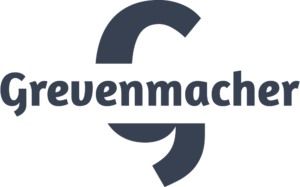In the expanding field of biomedical research and pharmaceutical development, antibodies have emerged as indispensable tools. From diagnostics to targeted therapeutics, their applications are wide-ranging and continuously evolving. As demand for high-quality antibodies increases, many academic institutions, biotech firms, and pharmaceutical companies are turning to specialized antibody production services to streamline their research and development processes.
What Are Antibody Production Services?
Antibody production services involve the generation of antibodies—either monoclonal or polyclonal—tailored to recognize specific antigens. These services are typically offered by contract research organizations (CROs) or biotechnology firms that possess the specialized equipment, technical expertise, and infrastructure needed to produce high-quality antibodies consistently.
Such services are critical for clients that require custom antibodies for uses in assays, therapeutics, diagnostics, or biomarker discovery but may not have the internal capacity or expertise to produce them efficiently.
Types of Antibodies Produced
Antibody production services generally offer both polyclonal and monoclonal antibody generation:
Polyclonal Antibodies (pAbs): These are produced by immunizing animals (commonly rabbits, goats, or sheep) with the antigen of interest. The immune response generates a heterogeneous mixture of antibodies that bind to various epitopes on the antigen. Polyclonal antibodies are relatively quick and cost-effective to produce and are often used for applications like immunohistochemistry, ELISA, and Western blotting.
Monoclonal Antibodies (mAbs): These are generated from a single B-cell clone and recognize one specific epitope. The process involves immunizing mice (or other species), isolating B cells, and fusing them with myeloma cells to form hybridomas, which can be cultured to produce uniform antibodies. Monoclonal antibodies are preferred for therapeutic applications due to their high specificity and reproducibility.
In recent years, advances in recombinant antibody technologies have led to the rise of recombinant monoclonal antibodies, which are produced using gene cloning and expression in cell lines such as CHO (Chinese Hamster Ovary) cells. These offer even greater control over antibody properties and are widely used in therapeutic development.
Key Steps in Antibody Production
Though the exact workflow may vary depending on the service provider and the type of antibody being produced, most antibody production services follow a structured process:
Antigen Design and Preparation: The first step involves identifying or synthesizing the antigen to which the antibody will bind. This can be a full-length protein, a peptide, or a modified molecule.
Immunization: Selected host animals are immunized over a series of weeks with the antigen to elicit an immune response.
Serum Collection or B-cell Harvesting: In polyclonal antibody production, blood is collected from the animal to harvest the serum. In monoclonal antibody production, B cells are harvested from the spleen or lymph nodes.
Screening and Selection: For monoclonal antibodies, hybridomas or expression systems are screened to identify clones that produce high-affinity antibodies against the antigen.
Purification and Characterization: Antibodies are purified using techniques like protein A/G affinity chromatography. Their specificity, affinity, and cross-reactivity are characterized using ELISA, Western blot, or flow cytometry.
Scale-up and Production: Once the desired antibody clone is selected, it can be produced at various scales depending on the intended application, from small research batches to large volumes for therapeutic use.
Applications of Custom Antibodies
The scope of antibody applications is broad and continually expanding:
Research: Antibodies are vital in studying protein expression, localization, and function in various model organisms and cell lines.
Diagnostics: Many diagnostic tests for infectious diseases, cancer, and autoimmune disorders rely on antibodies to detect specific biomarkers.
Therapeutics: Monoclonal antibodies are used to treat cancers, autoimmune diseases, and infectious diseases. Therapies such as rituximab, trastuzumab, and pembrolizumab exemplify the success of antibody-based drugs.
Biopharmaceutical Development: Antibodies can be used in drug target validation, biomarker discovery, and preclinical testing.
Advantages of Outsourcing Antibody Production
Outsourcing antibody production to specialized service providers offers numerous benefits:
Expertise and Experience: Providers often have years of experience and use well-optimized protocols.
Customization: Tailored antibody design ensures greater experimental success.
Cost-Effectiveness: Avoids the need for costly infrastructure and skilled personnel.
Scalability: Services can accommodate both small-scale academic projects and large-scale industrial production.
Conclusion
As the biotechnology and pharmaceutical landscapes continue to grow, the demand for high-quality, specific, and reliable antibodies remains strong. Antibody production services fill a critical need by providing customized, scalable, and expertly crafted solutions for a wide array of scientific and medical applications. Whether for basic research or clinical use, these services help accelerate discovery, improve diagnostics, and support the development of innovative therapies that can transform human health.
